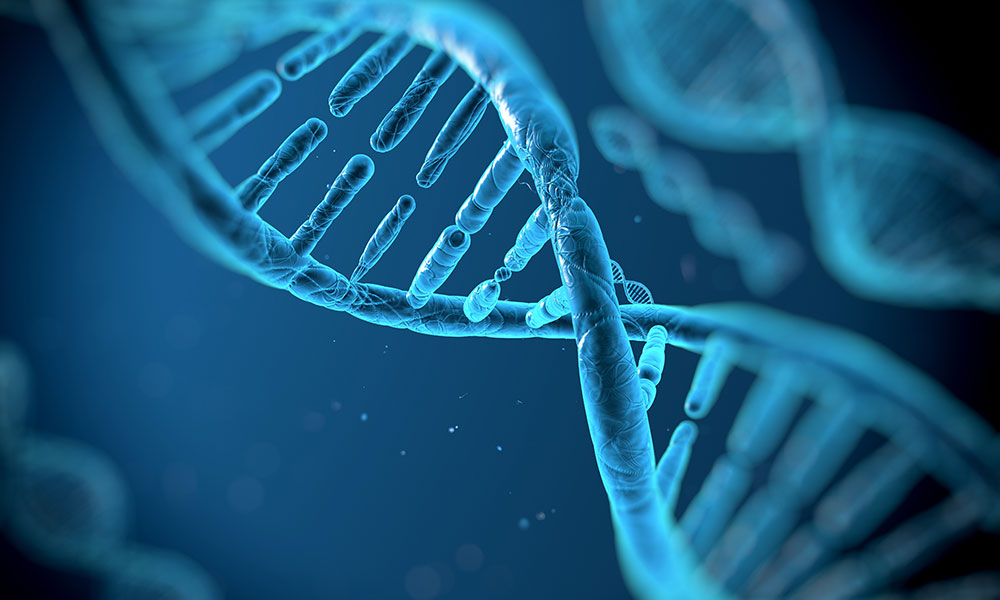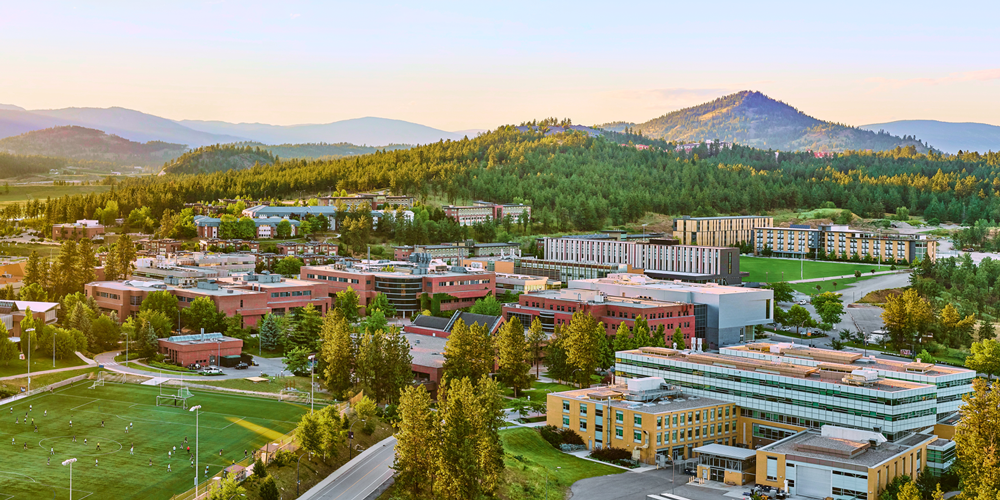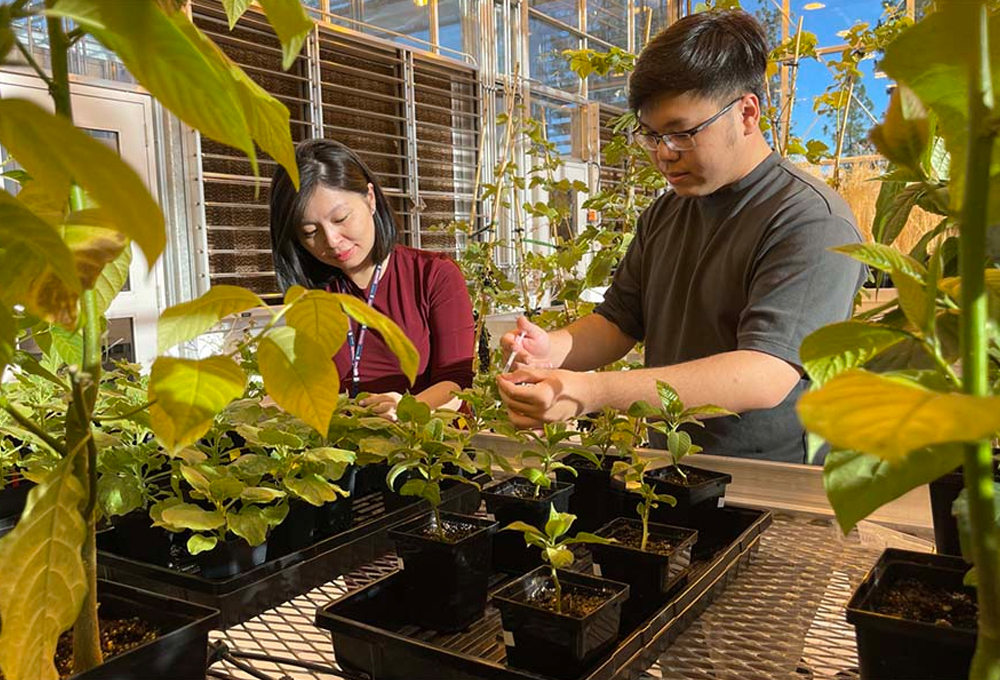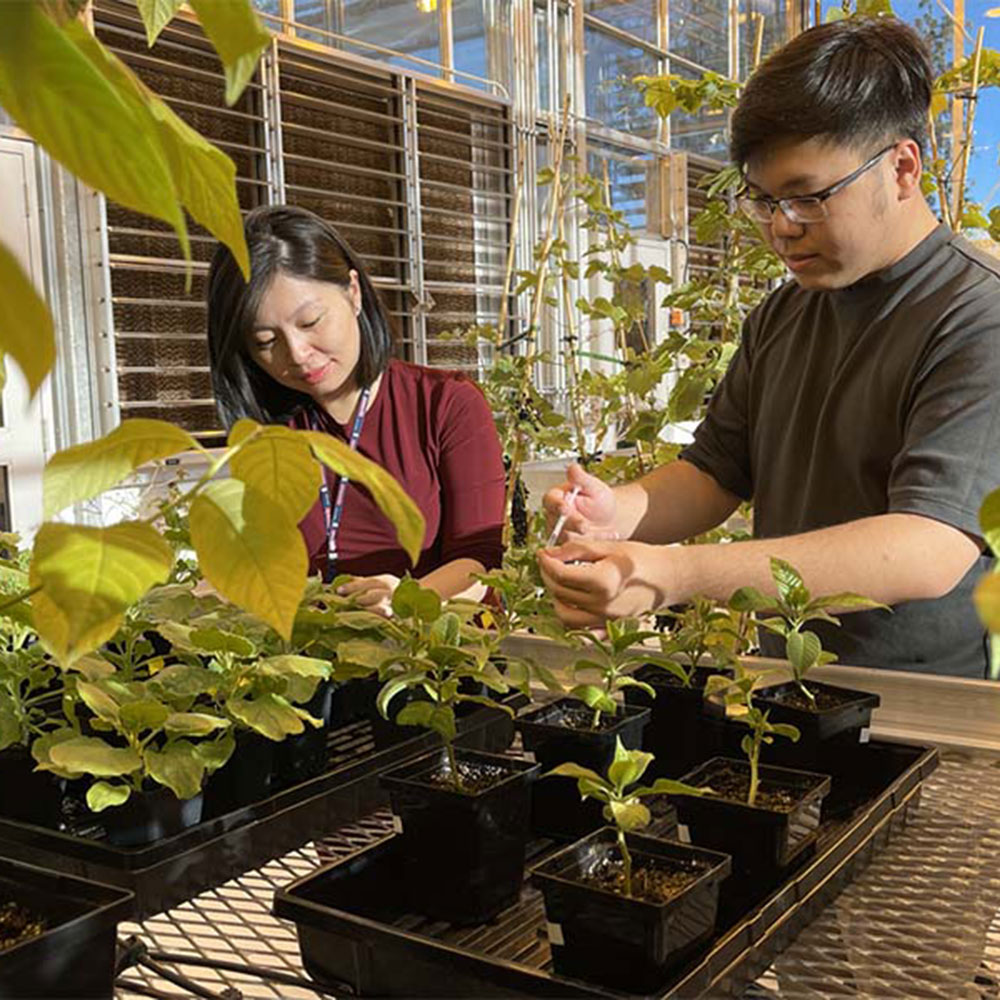Master of Science (MSc), Doctor of Philosophy (PhD)

Irving K. Barber Faculty of Science
| Program | Components | Length |
|---|---|---|
| Master of Science (MSc) | Coursework and thesis | 24 months |
| Doctor of Philosophy (PhD) | Dissertation | 48 months |
Why study Biochemistry and Molecular Biology at UBC Okanagan?
The biochemistry and molecular biology graduate program at the University of British Columbia’s Okanagan campus in Kelowna, BC, offers tier-one research-based degrees to students in a collegial, close-knit setting.
Our dynamic faculty and students are engaged in a variety of research projects, many in collaboration with partners in government, non-profit agencies or industry.
Our research-based MSc and PhD degrees in biochemistry and molecular biology provide students with theoretical, practical and analytical expertise, as well as experience in the application of scientific results to real-world problems.
The MSc degree is designed to enable and support students as they conduct original research, develop teaching and mentoring skills, and become engaged in the scientific community at large.
Students learn the theoretical, technical, analytical and communication skills needed to perform timely and groundbreaking research. Their original work makes significant contributions to our understanding of the mechanism of biochemical processes and the complex interactions between organisms.
PROGRAM MILESTONES
- establishing a faculty supervisory committee
- preparing, presenting, and defending a thesis research proposal
- completing coursework
- researching, writing, and defending a thesis
- working as a Teaching Assistant (TA) for at least one term
COURSEWORK & THESIS REQUIREMENTS
- biochemistry seminar course (BIOC 530)
- 6 additional credits of coursework, as approved by the student’s advisory committee, with a cumulative average of 75% or higher
- 21-credit MSc thesis (BIOC 549)
Exceptional MSc students can transfer to the PhD program if they meet program requirements.
The PhD degree is designed to enable and support students as they conduct original research, develop teaching and mentoring skills, and become engaged in the scientific community at large.
Students learn the theoretical, technical, analytical and communication skills needed to perform timely and ground-breaking research. Their original work makes significant contributions to our understanding of the mechanism of biochemical processes and the complex interactions between organisms.
PROGRAM MILESTONES
- establishing a faculty supervisory committee
- preparing, presenting, and defending a dissertation research proposal
- completing dissertation research and writing, and defending the work
- working as a Teaching Assistant (TA) for at least two terms
COURSEWORK
- biochemistry seminar (BIOC 630), unless BIOC 530 or a similar graduate-level course was previously taken as part of MSc coursework
Research and Supervisors
Research Areas
Graduate students can pursue these and other faculty research and teaching interests:
|
|
Supervisors
Please connect with a faculty supervisor before you start the application process. We look forward to hearing about your research interests and career goals.
Graduate student supervisor
Graduate student supervisor
Graduate student supervisor
Graduate student supervisor
Graduate student supervisor
Graduate student supervisor
Graduate student supervisor
Facilities and Labs
- The Biological Solutions Laboratory (BSL)
- The Barker Lab
- The Facility for Environmental and Biological Imaging (FEBI)
- The Menard Lab
- Plant Secondary Metabolite Analytical Research Team (PlantSMART)
- Mahmoud Lab
- Wolthers Research Group
- Single Molecule Cellular Biophysics Lab
- Shipley Lab
- Zandberg Lab
Learn more about research in the Department of Chemistry and find descriptions of the the centres, institutes and labs that form the foundation of our research efforts.
Students and Alumni
Meet our students
See what our students are up to—find them in our Contact page for their research interests, supervisors, alma maters and info.
Connect with your peers
The Biochemistry Course Union is a student union dedicated to connecting students with each other, the university and the community in order to enhance students’ research, learning and overall experience at UBC Okanagan.
Theses and Dissertations
Find all UBC Okanagan student publications on the University’s digital repository for research and teaching materials.
EXPLORE STUDENT PUBLICATIONS
Tuition and Funding
Tuition
Tuition amounts presented here are estimates only and all fees are subject to change. For official tuition and fee information, visit the UBC Okanagan Academic Calendar, a comprehensive guide to all programs, courses, services and academic policies at the University of British Columbia.
| Program | Schedule | Domestic (per year) | International (per year) |
|---|---|---|---|
| MSc | Full-time | $4,995.78 | $8,776.74 |
| PhD | Full-time | $4,995.78 | $8,776.74 |
Tuition is paid three times a year, on the first day of each term: Winter Term 1 (September), Winter Term 2 (January), and Summer Term (May).
Funding Opportunities
Graduate student stipends are funded through a combination of internal and external funding awards, Teaching Assistantships and Research Assistantships.
Although funding and stipend amounts are not guaranteed, the biochemistry and molecular biology graduate program has a number of assistantships available for qualified students. Talk to your potential supervisor about funding opportunities.
Students are expected whenever possible to apply for relevant scholarships and fellowships, including Canadian Tri-Council scholarships and other University Awards.
If students wish to hold off-campus (external) employment, they should discuss with their supervisor, particularly if the student is a grant-holder, as restrictions on hours of work may apply.
GRADUATE ENTRANCE AWARD
The Irving K. Barber Faculty of Science offers a $15,000 merit-based entrance scholarship to three exceptional individuals entering their first year of thesis-based graduate studies under a supervisor from the Irving K. Barber Faculty of Science, or an Interdisciplinary Graduate Studies program with a supervisor who is a member of the Irving K. Barber Faculty of Science.
All applicants to Irving K. Barber Faculty of Science graduate programs who have submitted an application by January 31 will be automatically considered for the award. No additional application is required. Successful applicants will be notified by March 15.
Assistantships
The biochemistry and molecular biology graduate program has funding opportunities and assistantships available for qualified students.
| Program | Minimum funding | Duration |
| MSc | $22,000 per year | 2 years |
| PhD | $26,000 per year | 4 years |
TEACHING ASSISTANTSHIPS (TA)
Paid TA positions are provided through the department and allow graduate students to develop skills in teaching, supervision, facilitation, and student assessment. Teaching assistants may lead seminars, help teach undergraduate coursesmor assist in student evaluations and marking.
- MSc students are eligible for paid TA positions for up to two years.
- PhD students are eligible for paid TA positions for up to four years.
- TA positions usually occur September to April. TA hours and wages are governed by the British Columbia Government Employees Union (BCGEU).
Teaching assistants are mentored by their supervisor and via the Centre for Teaching and Learning. To learn more or apply for a position, see our Careers page.
Research Assistantships (RA)
As paid research assistants, graduate students assist their supervisor or other researchers in conducting high-level research. RAs are typically funded by a supervisor’s external grants, contracts or other sources of funding, and, therefore, are not guaranteed.
Research Assistantships are wholly dependent upon individual research supervisor’s funding. RA positions may take place at any time during the school year and wages and hours will vary. RA positions are not guaranteed. Talk to your potential supervisor about RA opportunities.
Scholarships & Awards
UBC Awards
The College of Graduate Studies administers merit-based graduate awards at the Okanagan campus. The College manages a number of award competitions each year and administers payment of all internal awards and selected external awards.
External Awards
All prospective graduate students (Domestic and International) should explore and apply for external awards and fellowships, including awards offered by Canada’s three research councils: CIHR, NSERC and SSHRC.
Graduate scholarships and awards may also be available from foundations, private organizations or foreign governments (check with your country’s education authority).
Global and Close-Knit
At UBC Okanagan, you gain all the benefits of attending a globally ranked, top 5% university while studying in a close-knit learning community. 50% of graduates, from all across the globe, choose to stay in the region.

Discover the Okanagan
A diverse natural region with sandy beaches, beautiful farms, vineyards, orchards and snow-capped mountains, the Okanagan is an inspirational landscape perfect for those seeking leisure or outdoor adventure.
UBC's Okanagan campus borders the dynamic city of Kelowna, a hub of economic development with a population of more than 150,000 people— the fourth fastest-growing population in Canada.








